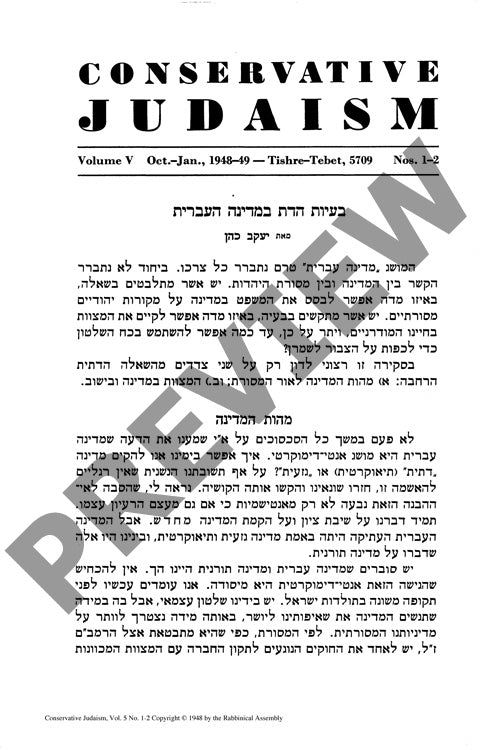Beayot Ha Dat Ba Medinah Ha Ivrit
Couldn't load pickup availability
The creation of a modern Hebrew state surfaced a profound dilemma: how could ancient Jewish religious traditions coexist with democratic governance? At its core lies a clash between divine authority and popular sovereignty, though both systems share aspirations for social improvement and individual moral development. Through textual analysis and theological examination, two critical dimensions emerge: the state's fundamental nature according to Jewish tradition, and the feasibility of implementing religious commandments (mitzvot) in contemporary political contexts. A crucial distinction arises between a "Hebrew state" and a purely "Jewish state," as modern reality encompasses non-Jewish citizens and democratic structures incompatible with traditional theocratic rule. While Jewish influence inevitably shapes the state's character and legislation, complete implementation of traditional Jewish law (halakha) proves neither practical nor compatible with democratic governance in a pluralistic society. Religious observance in the public sphere requires reformulation, maintaining a clear boundary between private religious practice and public policy to accommodate both democratic principles and religious tradition in the modern state.

More Information
-
Physical Description
-
Publication Information
Published 1948-1949
ISBN
-
Publication Credits
Ya'akov Cohen

